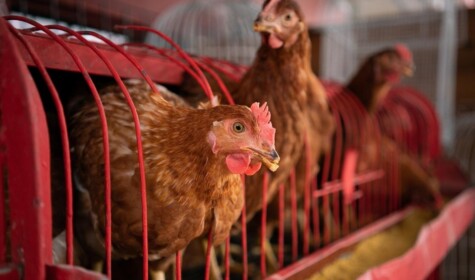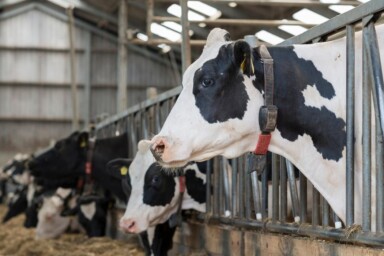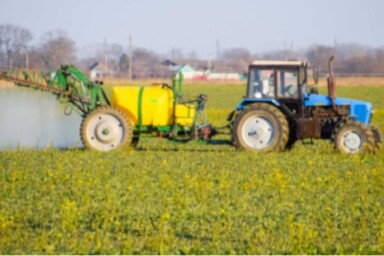In a press release published today, the Alliance to Save Our Antibiotics has drawn attention to a developing divergence between food production standards in the UK and the EU. From today, livestock farmers in the EU’s remaining 27 member countries will face greater restrictions on the use of antibiotics than farmers in the UK.
Intensive livestock farmers in the EU will no longer be permitted to use antibiotics routinely or to compensate for poor hygiene or animal welfare. Such use will, however, continue to be allowed in the UK.
As concern has grown about the alarming rise of antibiotic-resistant infections globally, farmers in the UK have managed to reduce their use of antibiotics by 49% since 2014 and many farmers are continuing to go further. Yet use per pig in the UK is still 250% higher than in the Netherlands and Denmark, two major pork-producing countries.
Of even greater concern to UK consumers – while the EU has also banned the importation of meat from countries like the US and Australia, where the use of growth-promoting antibiotics long-banned in the EU and UK is still permitted – the UK government has so far refused to follow suit. This inevitably gives rise to concern that the government gives a higher priority to rushed trade deals than to the safety of UK consumers.
This is an issue which we exposed in our report, ‘Maximum Growth: Whatever the Cost’ in December 2020.
SFT Policy Director, Richard Young said, ‘Antibiotic resistance is a major, developing problem caused by the overuse of antibiotics in both human and veterinary medicine. The Sustainable Food Trust fully supports calls for the UK to keep its veterinary medicines legislation fully in line with the EU. This would help to protect UK consumers and it would also help to prevent UK farmers being undercut by imports produced in other countries with antibiotics used to make animals grow faster. If this is allowed to happen, decades of hard-won progress could go into reverse. UK farmers could be forced to increase their use of antibiotics, in order to compete and stay in business, rather than reduce them further, which is what needs to happen.’
Press Release
From today the UK will have weaker farm antibiotic regulations than the EU. Farmers on the continent will no longer be allowed to give preventative group antibiotic treatments or use antibiotics to mask poor living conditions and standards for farm animals. This will remain legal in the UK. The Alliance to Save our Antibiotics says this threatens to undermine recent improvements in the UK and increases the risk of antibiotic resistance.
New legislation in the EU has banned all forms of routine antibiotic use for farm animals. They have also banned imports of meat, dairy, fish and eggs that have been produced using antibiotics to stimulate rapid growth in the animals.
Antibiotic resistance is increasing at a faster rate than previously realised and, as reported in The Lancet in 2019, it was directly responsible for the deaths of more than one and a quarter million people worldwide and linked with the deaths of nearly five million people. The overuse of antibiotics in humans and farm animals is to blame for this crisis. Worldwide about two thirds of antibiotics are used in livestock.
The new EU legislation was agreed in 2018, and since then the UK government has repeatedly said that it largely supported the new regulations and would introduce similar laws here. However, over three years later the Government has still not published its own legislative proposals for ending excessive farm antibiotic use. This leaves the UK exposed and means that rules here are weaker. It remains legal in the UK to:
- give antibiotics to farm animals routinely, rather than when they are sick or have an infection
- give preventative group treatments to farm animals
- give antibiotics to farm animals to compensate for inadequate welfare standards, lack of care or poor hygiene
- import animal foods produced with antibiotic growth promoters
Campaigners are calling for the UK government to honour its repeated commitments and the Alliance to Save Our Antibiotics (ASOA) has written to Environment Secretary George Eustice MP urging the Government to act swiftly to improve the UK’s farm antibiotic laws in line with the EU.
Cóilín Nunan ASOA Scientific Advisor said: ‘British farmers have voluntarily reduced their antibiotic use by 50% in recent years. But much larger cuts can still be achieved if the Government introduces new laws ending preventative antibiotic group treatments and increasing minimum animal health and welfare standards. On the other hand, if the government pursues a trade policy which cuts tariffs on the importation of meat and dairy produced with extremely high antibiotic use, including the use of antibiotic growth promoters, then in order to compete, British farmers could be compelled to reduce their own animal health and welfare standards and increase their use of antibiotics.’







